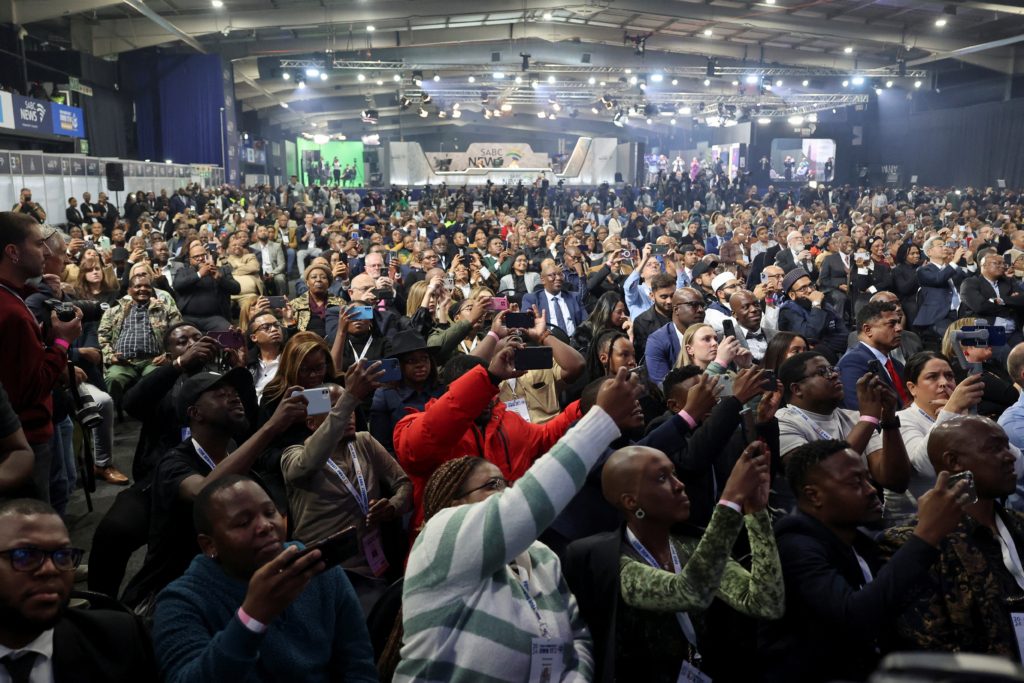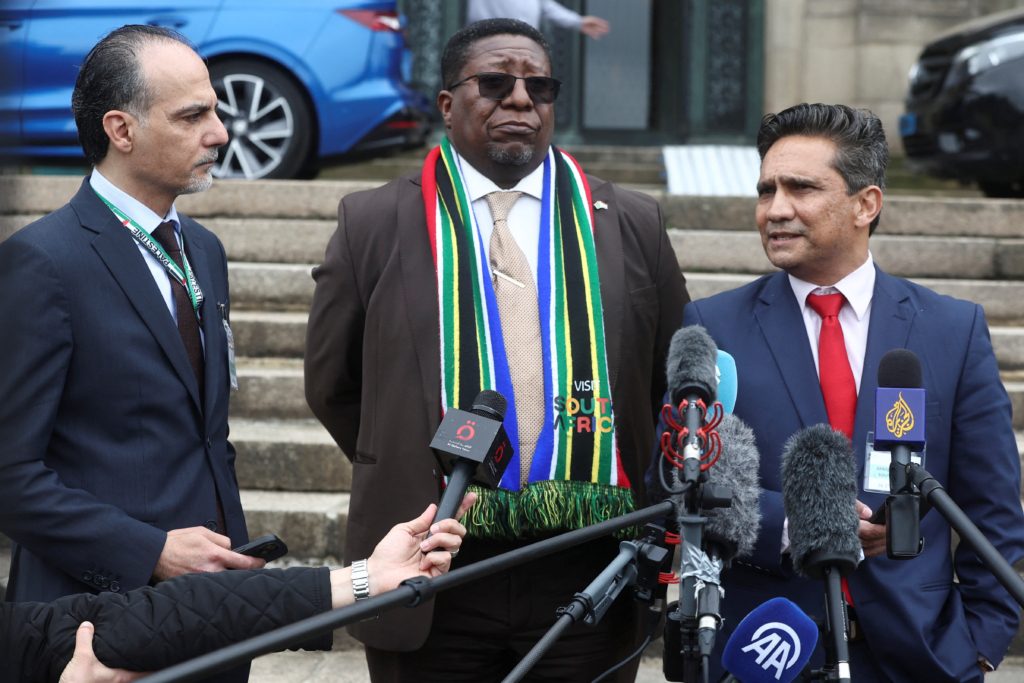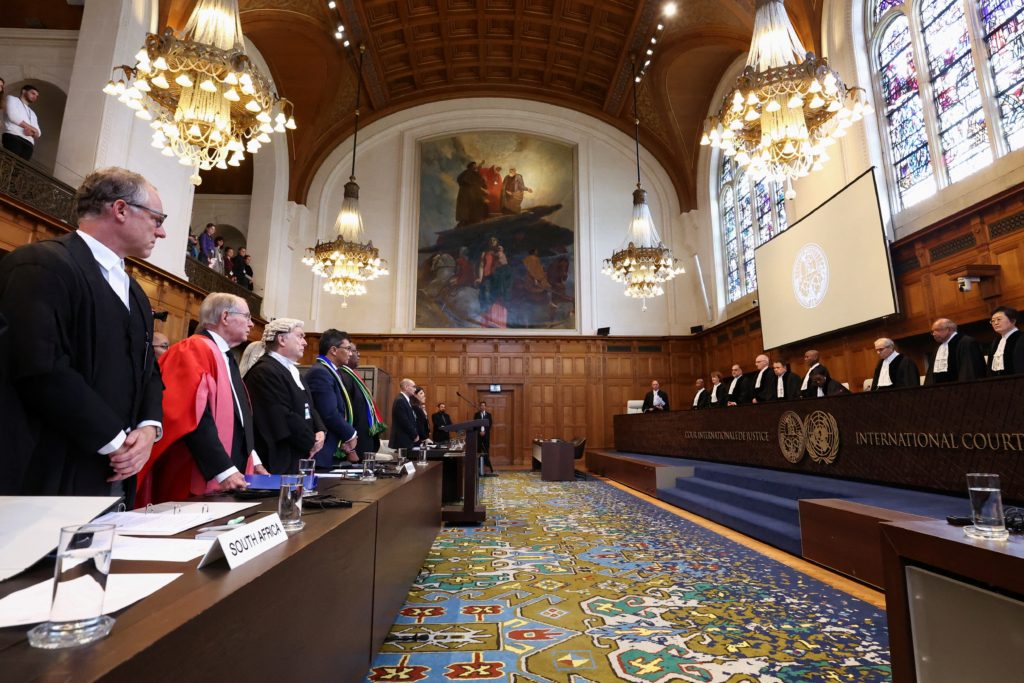On June 2, the results of South Africa’s general elections revealed the end of the African National Congress (ANC) party’s three-decade dominance and the beginning of a race to form a coalition government. How will this shift impact South Africa’s foreign policy, especially regarding the Palestinian cause, which the ANC has been a major supporter of?
The elections, held on May 29, saw participation from over fifty parties. Voters reduced their support for the ANC to 40.18%, a significant drop from 57.5% in the 2019 elections. The main opposition party, the Democratic Alliance (DA), garnered 21.8% of the votes, while the new “Mkhonto We Sizwe Party (MKP)”, led by former president Jacob Zuma, a breakaway from the ANC, received 14.6%. The radical left-wing “Economic Freedom Fighters (EFF)”, led by former ANC Youth League leader Julius Malema, secured 9.5% of the votes, and other parties received very small shares.
The ANC lost to its breakaway factions

This situation compels the ANC to form a partnership with one or more rival parties to maintain its position in power. This is an unprecedented development since the end of white minority rule in 1994, according to a report by “Asbab” for Political and Strategic Studies.
Forming such a partnership will require complex negotiations and concessions on policies and government appointments, which will have significant implications for the new government’s policies. However, the fundamentals of South Africa’s foreign policy are unlikely to change significantly.
The most notable development in the elections is the surprising and unexpected success of the MKP, led by former president Zuma. This party was registered only six months ago and named after the former military wing of the ANC. It has attracted many supporters of the ANC, especially among the poor and South Africans of Zulu descent who followed Zuma in breaking away from the ANC. In addition to significantly impacting the ANC’s share of the vote, the MKP also appears to have posed a challenge to the radical EFF, potentially leading to a further decline in its popularity.
Will the ANC ally with the pro-Israel opposition to keep its president in office?

Thus, the future of the current South African president, Cyril Ramaphosa, has come into question, despite the party leadership’s assurances that he will not resign. The president, chosen by the 400 members of the National Assembly, must secure the support of about 40 additional members outside the ANC bloc to ensure another five-year term. This does not necessarily require a formal coalition, but it will undoubtedly involve political bargaining and broad understandings.
Ramaphosa’s allies may call for an agreement with the right-wing Democratic Alliance (DA), which partially bases its popularity on the white and colored communities, as it is unlikely that the ANC will form a stable parliamentary majority with smaller parties.
This party is the closest to Israel among most parties in the country.
However, this will likely face strong resistance from the left wing of the ANC, which would prefer an agreement with the radical Economic Freedom Fighters (EFF) and/or the MKP led by Zuma. These potential internal tensions within the ANC will test the party’s cohesion, which lost its majority mainly due to breakaway factions.
The ANC government and its new partners will need to develop a unified stance on pressing global issues such as South Africa’s position in international competition, climate change, and security and geopolitical competition in Africa. Regardless of the election results, the fundamentals of South Africa’s foreign policy are expected to remain steady, including the reform of international institutions to reflect Africa’s priorities, the defense of Palestinian rights, and the stance on the Western Sahara issue.
The ANC may be forced to enter into a coalition with the Democratic Alliance (DA), which has significantly different foreign policy orientations. However, the ANC will likely remain the dominant party and is unlikely to relinquish important ministerial portfolios, especially foreign policy. The presence of the DA in the government might moderate some morally driven policies, but it will not cause a radical shift in South Africa’s entrenched positions.
Or will it ally with the radical party supporting the anti-Israel stance?

A coalition with the Economic Freedom Fighters (EFF) is more likely to result in the continuation of an anti-Israel stance and policies that promote South-South cooperation and opposition to Western dominance.
South Africa is a prominent critic of Israel’s war on Gaza, accusing the occupation state of committing genocide in a case before the International Court of Justice. This case is expected to last for years, meaning any new coalition government will inherit it, according to Asbab’s report.
However, the election results could have implications for this complaint, as the pro-business DA opposes it, preferring a negotiated settlement to the conflict between Israel and Hamas.
Conversely, the EFF shares the pro-Palestinian stance with the radical ANC and has also accused Israel of genocide. While the stance of the Zuma-led MKP is less clear, it is likely to support the Palestinian cause due to its ideological alignment with the ANC.
Under ANC leadership, South African diplomacy has shown a consistent trend of cooperation with Russia, continuing even after Russia’s invasion of Ukraine. The ANC’s ties with Russia date back to the struggle against apartheid.
Relations between the United States and South Africa became strained when the ANC government allowed Russian and Chinese warships to conduct drills off its coast in early 2023. The DA has been highly critical of the ANC’s relationship with Russia, accusing it of betraying non-alignment and declared neutrality regarding the Ukrainian conflict and broader tensions between Russia and the West.
Sunna Files Free Newsletter - اشترك في جريدتنا المجانية
Stay updated with our latest reports, news, designs, and more by subscribing to our newsletter! Delivered straight to your inbox twice a month, our newsletter keeps you in the loop with the most important updates from our website












